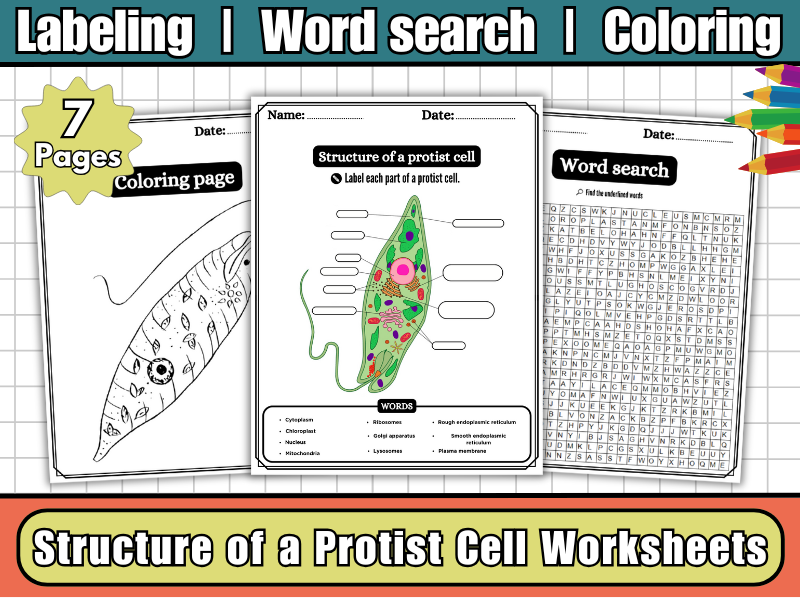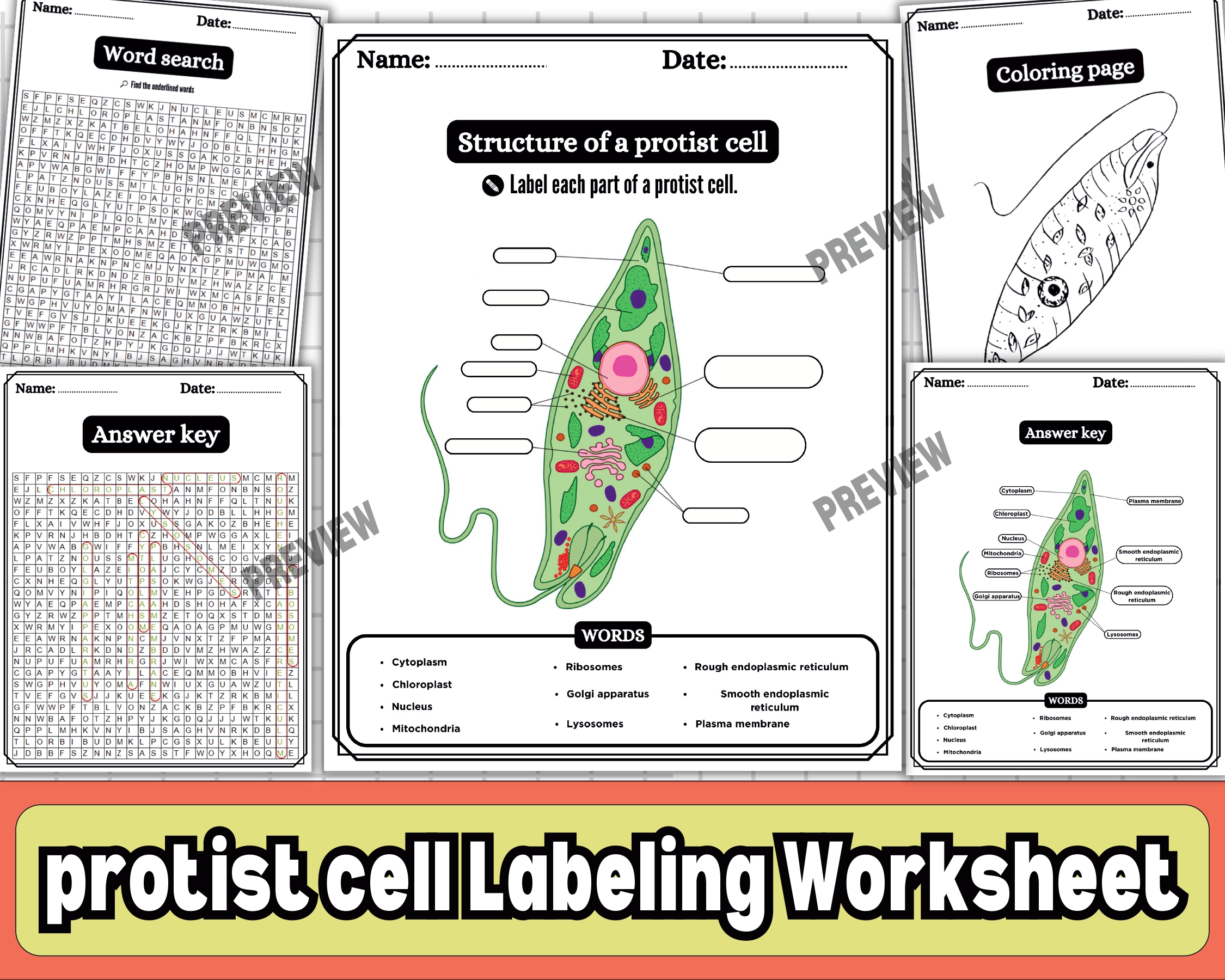

Structure of a Protist Cell – Protist Anatomy Labeling Worksheet, Coloring Page & Word Search | Microorganism Science Activity
Dive into the microscopic world with this detailed and engaging Structure of a Protist Cell activity pack! Perfect for introducing students to protists, this resource helps learners explore the unique cellular structures found in these fascinating microorganisms—ideal for KS2, KS3, or lower secondary biology.
Through interactive labeling diagrams, coloring, and word puzzles, students will gain a foundational understanding of the anatomy and function of key protist organelles. Whether you’re teaching single-celled life, classification, or microscopic organisms, this pack brings science to life.
What’s Included:
Labeled Diagram of a Protist Cell – Clear visual showing important structures
Blank Labeling Worksheet – Students label structures like nucleus, contractile vacuole, pseudopodia, flagella, and more
Word Search Puzzle – Reinforces scientific vocabulary related to protist anatomy
Coloring Page – Enhances memory retention and visual learning
Learning Objectives:
Understand the basic structures of a protist cell
Identify and label parts such as the nucleus, cytoplasm, and cilia
Learn about the movement and feeding adaptations of protists
Reinforce key terminology with engaging word puzzles
Develop fine motor skills and visual recognition through coloring
Parts of a Protist Cell Covered:
Nucleus
Contractile vacuole
Food vacuole
Cell membrane
Cytoplasm
Flagella or cilia
Pseudopodia
Eyespot (for photosynthetic protists)
Chloroplast (in plant-like protists)
Perfect For:
KS2 and KS3 Science / Biology Lessons
Microorganism and Classification Units
Homeschool Science Activities
Homework or Review Tasks
Interactive Notebooks or Science Journals
This Structure of a Protist Cell resource is a must-have addition to your biology or life science teaching toolkit, providing hands-on learning for topics like unicellular organisms, protozoa, and microbiology. It supports curriculum goals while keeping students actively engaged.
Something went wrong, please try again later.
This resource hasn't been reviewed yet
To ensure quality for our reviews, only customers who have purchased this resource can review it
to let us know if it violates our terms and conditions.
Our customer service team will review your report and will be in touch.